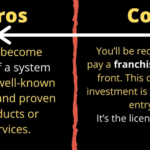Business success is often measured by the money you make. But there’s more to success than just dollars and cents. To accurately measure success in business, you need to think beyond the bottom line.
Business success involves more than just financial returns. It includes other measures such as customer satisfaction, employee engagement, and competitive advantage. Measuring success in business requires a comprehensive approach that takes into account all of these factors.
We’ll explore 12 ways to measure success in business. We’ll look at how to define your goals, focus on the right metrics, and leverage technology to measure success. We’ll also discuss how to get feedback from customers and analyze your competition. By following these steps, you can determine if your business is on the right track and make necessary adjustments.
Define Your Goals
The first step in measuring success in business is to define your goals. You need to decide what you want to achieve and set measurable objectives. This could include financial goals such as revenue growth or profitability targets. It could also include goals related to customer service, employee engagement, or product innovation.
Once you’ve identified your goals, you can create a plan to measure success. This plan should outline how you will track your progress and evaluate your results. It should include the metrics you’ll use, who is responsible for monitoring them, and when and how you will review your results.
Focus on the Right Metrics
When measuring success in business, it’s important to focus on the right metrics. You need to determine which metrics are most important and which ones are less important. For example, if you’re trying to increase customer satisfaction, you may want to focus on metrics such as customer loyalty or Net Promoter Score (NPS). If you’re trying to increase profitability, you may want to focus on metrics such as cost per acquisition or customer lifetime value.
Monitor Regularly
Once you’ve identified the metrics you want to track, you need to monitor them regularly. Regular monitoring helps you identify trends and make timely adjustments. You can use analytics tools to track key metrics and generate reports. You can also set up alerts for when certain metrics reach a certain threshold.
Adopt a Test-and-Learn Strategy
To measure success in business, you need to adopt a test-and-learn strategy. This involves designing experiments and testing different approaches to see which ones are most effective. For example, you can test different pricing models or marketing tactics to see which ones drive the most sales.
Testing different approaches helps you identify the strategies that are most successful and the ones that need improvement. It also helps you make data-driven decisions instead of relying on guesswork.
Leverage Technology
Technology can help you measure success in business more effectively. There are a variety of analytics tools available that can track key metrics and generate reports. These tools can help you identify trends and make timely adjustments.
You can also leverage technology to automate certain processes. This can free up your time so you can focus on other areas of your business.
Consider Third-Party Analysis
Third-party analysis can help you get an objective view of your business. You can use survey tools to get feedback from customers and employees. You can also use market research tools to analyze your competition.
These tools can provide valuable insights that can help you measure success in business. They can help you identify areas of improvement and determine the best strategies to achieve your goals.
Measure Employee Performance
Employee performance is an important factor in measuring success in business. You need to track metrics such as employee engagement, productivity, and customer service. You can use analytics tools to monitor employee performance and generate reports.
You can also use surveys and feedback tools to get insights from employees. This can help you identify areas of improvement and create strategies to motivate and engage your team.
Get Feedback from Customers
Getting feedback from customers is an essential part of measuring success in business. You need to track customer feedback metrics such as customer satisfaction, Net Promoter Score (NPS), and customer loyalty. You can use surveys and feedback tools to get insights from customers.
Analyze Your Competition
Analyzing your competition is an important part of measuring success in business. You need to identify the strengths and weaknesses of your competitors and look for opportunities to gain a competitive advantage. You can use market research tools to analyze your competition and identify areas of improvement.
Continuously Adapt
Measuring success in business requires continuous adaptation. You need to analyze the data and make adjustments to your strategies. This could involve changing pricing models, improving customer service, or launching new products.
Conclusion
Measuring success in business is not as simple as counting the money you make. You need to take a comprehensive approach that takes into account all of the factors that contribute to success. This includes defining your goals, focusing on the right metrics, and leveraging technology to measure success.






